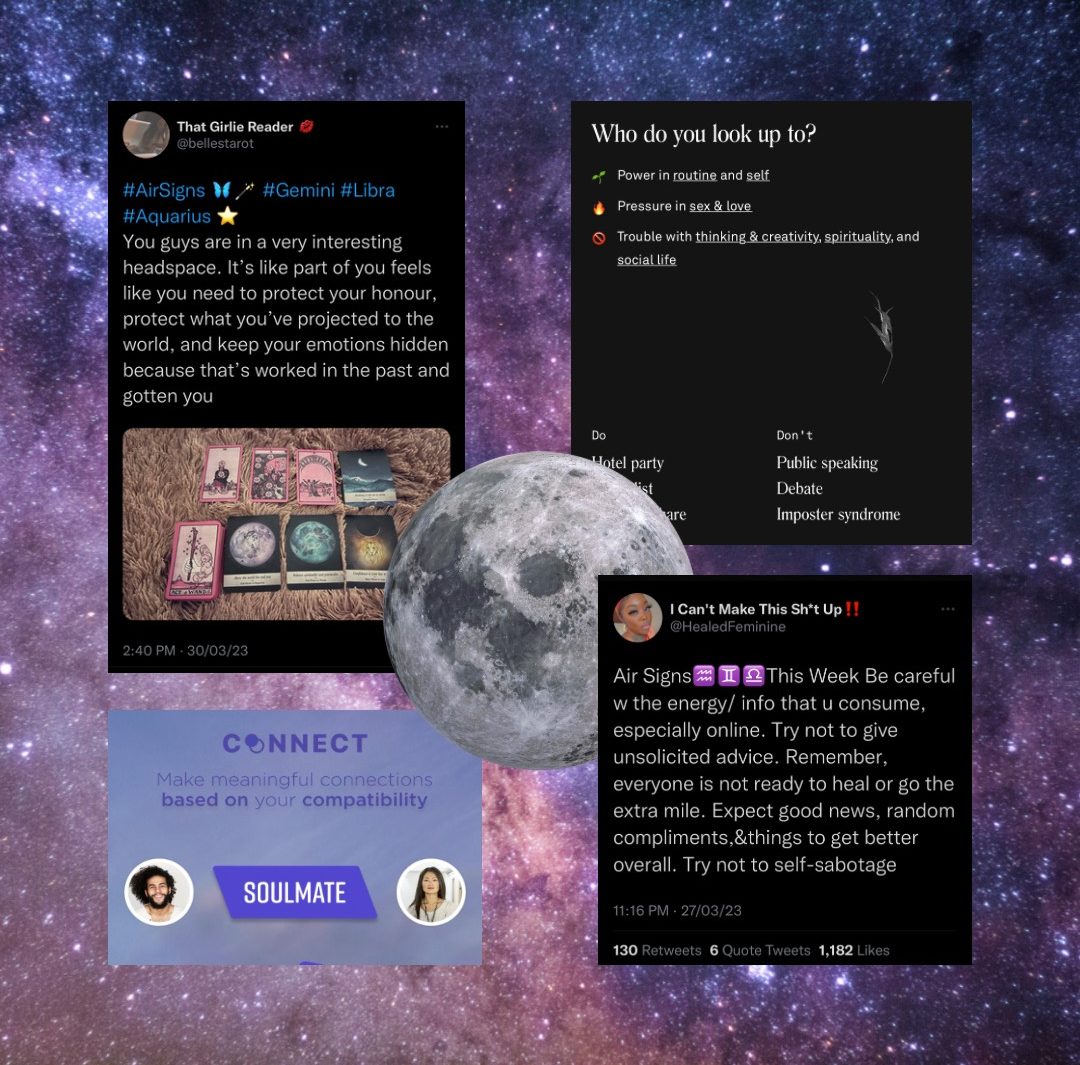Notice: Undefined property: stdClass::$error in /var/www/html/wp-content/themes/theissue/inc/misc.php on line 71
A few weeks ago, my best friend ended a disastrous situationship. The next morning, I woke up to a flurry of texts about how astrologers on Twitter had predicted her falling out and its subsequent effects. She tried to cope with the usual – Twitter, box hair dye and man-hating (all useful and highly recommended methods). But nothing seemed to give her the comfort that reading her horoscope and virtually pulling tarot cards did. She’d never mentioned astrology before. So I found it intriguing that she had gone from struggling to regain control over the end of her relationship, to renouncing all control, letting the universe decide for her. The more I think about it, the more natural that course of action seems.
Astrology and tarot reading have been rising trends among young people for a while now. It’s commonplace to be asked what your birth time is, and it’s embarrassing if you don’t know. Even those who don’t necessarily believe in zodiac signs find them intriguing. And during difficult times, it can have all the makings of a perfect solution.
“When someone has experienced trauma, they feel that their life is dishevelled in some ways,” Disha Manchekar, psychologist, trauma therapist and founder of Innate Mind, explained. “They feel at a loss of control as the traumatic event brings unpredictability to their life. In such a time, they seek things or people that bring some predictability. It may feel assuring to know what lies in the future and how they can act.”
The movement towards certain forms of spirituality started with millennials, but Gen Z are also devoted crusaders of it. According to research by WGSN, 62% of Gen Zs and 63% of millennials believe their zodiac signs are accurate representations of who they are. Tarot readers and astrologers (many self-taught ones) post readings and predictions on YouTube, Instagram and Twitter for free. Social media gave them a platform to reach a wide audience and create a community around it.
Then there are astrology apps like Co-Star, The Pattern and Sanctuary. They’re incredibly personalised, making each user feel understood on the deepest of levels. Not only does one feel heard, but also feels a sense of community with others who believe. That’s an essential part of such apps – you can add friends and check their patterns, behaviour and how they affect your compatibility.
“As humans, we have a strong need for belongingness,” Manchekar said. “Astrology specifically can fulfill this need. For instance, we often hear people say, “I zone out at times. Of course, it’s because I am a Gemini!” or “I am headstrong as a Taurus”. Automatically, we feel a part of a group. For some, it can be a fun way of relating while for others it can help to explore more about themselves.”
However, the dangers of extreme faith lurk here too. Looking for solace in the power of the stars can be comforting. But it’s important to remember that they don’t guarantee 100% accuracy – even if swiping left on all Scorpios, wearing your lucky colour and regularly cleansing your crystals has successfully averted danger so far.
“Obsessing over them will only lower self-esteem, create self-doubt and take away the focus of reality. So, it is wise to become self-aware, engage in healthy coping techniques and follow the information to a practical extent.”
Spirituality, when practiced in a healthy way can be a great source of guidance, especially in times of emotional turmoil. But it’s not a permanent solution, and certainly not a replacement for getting to the root of the issue. Manchekar adds, “From a psychological point of view, I would say that it is of utmost importance to believe in your capabilities and trust yourself to the fullest. Be it advice from others or astrology, one must not lose the faith in their decision-making skills.”





Warning: Use of undefined constant ‘url’ - assumed '‘url’' (this will throw an Error in a future version of PHP) in /var/www/html/wp-content/themes/theissue/functions.php on line 143